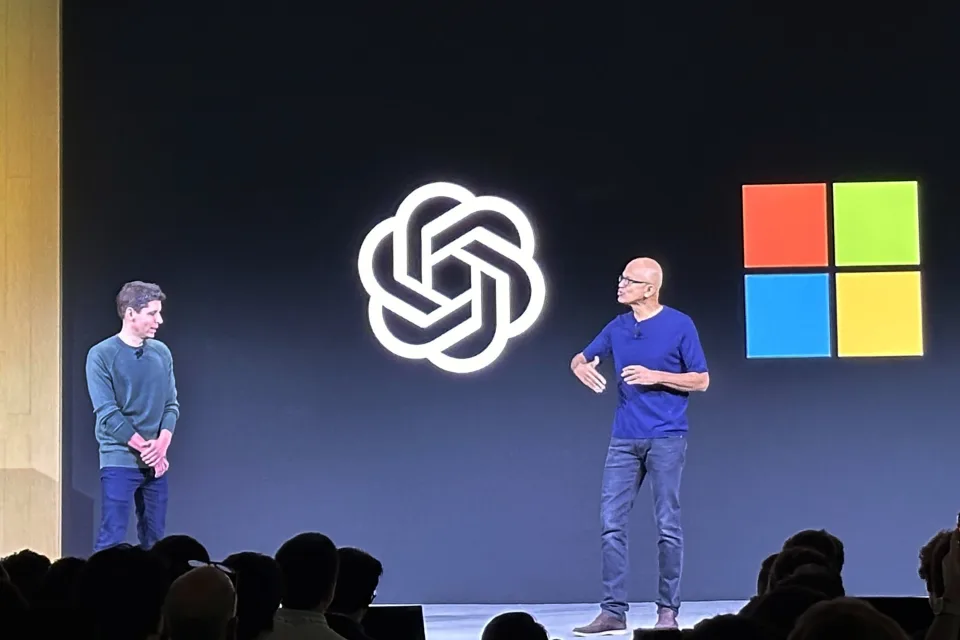OpenAI is reportedly building its own search product to take on Google (GOOG, GOOGL). But the ChatGPT creator is going to need a lot more help if it hopes to make even a slight dent in the search giant’s armor.
According to the Information, OpenAI is hard at work on developing a search product infused with generative AI capabilities that would be partially powered by Microsoft’s (MSFT) Bing. Microsoft has invested billions in OpenAI and uses some of the company’s technologies to run its Copilot AI software offerings for Microsoft 365 and Windows.
In February 2023, Microsoft announced it was going to go after Google’s search dominance with a new version of its Bing search engine powered by OpenAI’s GPT technology. But here we are in February 2024, and Microsoft is no closer to cutting into Google’s market share.
At the time, Microsoft said just 1% of search advertising market share was worth $2 billion in annual revenue. CEO Satya Nadella called it “a new day in search” and said that the AI-powered version of Bing represented a new paradigm for search.
But a year later Microsoft’s Bing efforts seem to have stalled. The company’s search engine had a market share of just 3.43% in January 2024, up less than 1% from the same time last year, according to StatCounter. Google, meanwhile, controls 91.46%, down less than 1% from last year.
Flipping the script with an OpenAI product that runs on Bing will face the same hurdles. Although, there’s the chance that ChatGPT’s popularity will carry the search offering further than Bing could.
But it’s not just the fact that Google is so popular. The company is also integrating generative AI into its search product. The feature puts AI-generated responses to searches at the top of the screen directly below the search box. The traditional list of search links show up below the generative AI box.
And while Microsoft has enjoyed a healthy advantage over Google in terms of the speed with which it’s been bringing generative AI products to market, Google isn’t far behind.
Microsoft continues to lead in the enterprise space thanks to generative AI products built into its productivity software and various cloud computing offerings.
But on the search front, it’s still all Google all the way. And even if OpenAI popularized the generative AI craze, the company has a long way to go if it hopes to take down the search giant.

